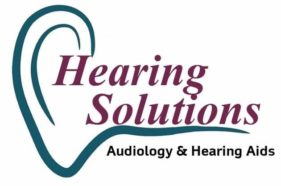
Hearing Education
What exactly is hearing loss and how do hearing aids work? We find that many of our patients come to us with basic questions or misconceptions about hearing loss and hearing aids. Because we want our patients to make informed decisions and truly understand their options, we’ve gathered some of the most common questions our patients ask us about hearing health and hearing aids.
Questions & Answers
What is the safest way to clean ears?
To clean your ears, simply take a damp cloth and wipe around the outer ear leading into the ear canal. This should sufficiently clean your ears and remove any excessive earwax. If you have earwax inside your ear that you cannot safely reach, contact our office for an appointment.
How do you unclog your ear?
Clogged ears due to earwax can cause discomfort and muffled hearing. If you have a build-up of earwax that is becoming increasingly noticeable, we encourage you to come in for an ear cleaning appointment. You should never try to remove earwax on your own with a cotton swab, as this can push the wax further into the ear canal. Instead, contact our office for an appointment.
How often should I clean my hearing aids?
You should clean your hearing aids every day, every time you take them out of your ears. Simply wipe them down with a dry, soft cloth or use a hearing aid brush. In addition, we recommend bringing your hearing aids into our office every six months for a professional cleaning.
Will hearing aids make a difference for me?
Hearing aids have changed a lot over the past decade, and our ability to treat more complicated hearing loss continues to grow every year. For people with hearing loss, hearing aids can seem like a miracle cure, but some people have had bad experiences and think that hearing aids won’t work. The truth is somewhere in the middle; hearing aids can make a huge difference for most people, but there are limits to what they can do. We let every patient know what they can expect from hearing aids.
When should I get hearing aids?
Putting off getting hearing aids can actually have permanent consequences, so if you think you might have hearing loss, it’s important to look into solutions soon rather than waiting. If your brain is not getting a signal from your ears because of hearing loss, that part of the brain will atrophy over time and no longer be able to work as well. If your brain is still fully operational, then turning the volume up with a hearing aid will help you hear better because your brain can get the messages from your ear and understand the words you hear. It’s best to treat your hearing loss sooner rather than later. You’ll be glad you did.
Can my hearing aids be programmed for my lifestyle?
Yes, our experts can program your hearing aids to fit your unique hearing loss and lifestyle. We want you to be able to hear everything that matters to you. When you receive your hearing aids, we will fit them to your ear and program them to match the activity of your lifestyle. If the amplification seems too loud or not loud enough for you, we would be happy to reprogram them for you. Our goal is to help you hear better and we will take the time to get you hearing your best.
What is tinnitus?
Tinnitus is a common complaint due to hearing loss and/or noise exposure. Studies have found that it is similar to phantom pain that a person feels when they lose an arm or leg. It’s your brains way of looking for information that is no longer there due to injury or trauma. Neural impulses are sent out to the area that is no longer responding for your brain to get feedback from that area. There is no perfect solution for every case of tinnitus, but many hearing aids can treat tinnitus at the same time they treat hearing loss.
Our Offices
Mon – Thurs: 9:00AM – 12:00PM & 1:30PM – 4:30PM
Fri – Sun: CLOSED
Jasper Office
605 W Gibson St
Jasper, TX 75951
F 409-384-2378
Mon – Thurs: 9:00AM – 12:00PM & 1:30PM – 4:30PM
Fri – Sun: CLOSED

